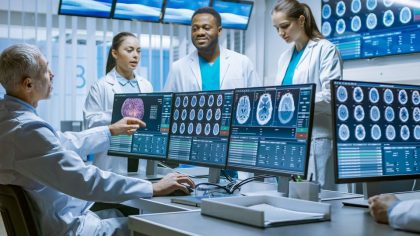Search and rescue: drones that detect human voices under collapsed buildings
• Fast, easy to use and equipped with on-board sensors, drones are increasingly used in search, exploration, and rescue missions.
• In Japan, a research team has developed an on-board AI that can locate the voices of earthquake victims hidden under rubble by filtering out noise generated by drone propellers.
• In India, swarms of drones are being programmed to quickly delimit the geographical scope of wildfires, reducing the average extent of burned areas by 65%.
Read the article
• In Japan, a research team has developed an on-board AI that can locate the voices of earthquake victims hidden under rubble by filtering out noise generated by drone propellers.
• In India, swarms of drones are being programmed to quickly delimit the geographical scope of wildfires, reducing the average extent of burned areas by 65%.



Portable IoT device helps Parkinson’s disease patients to manage their symptoms
Read the article
The Easy-to-Deploy LatenceTech Solution Measures Connectivity Performance
Read the article
With or without generative AI, aspiring developers still have to master the basics
Read the article
A. Cravic: “AI is playing a growing role in the teaching of videogame creation”
Read the article
